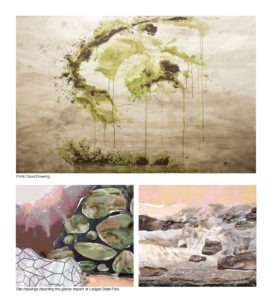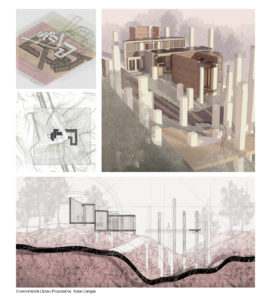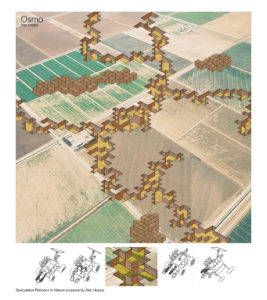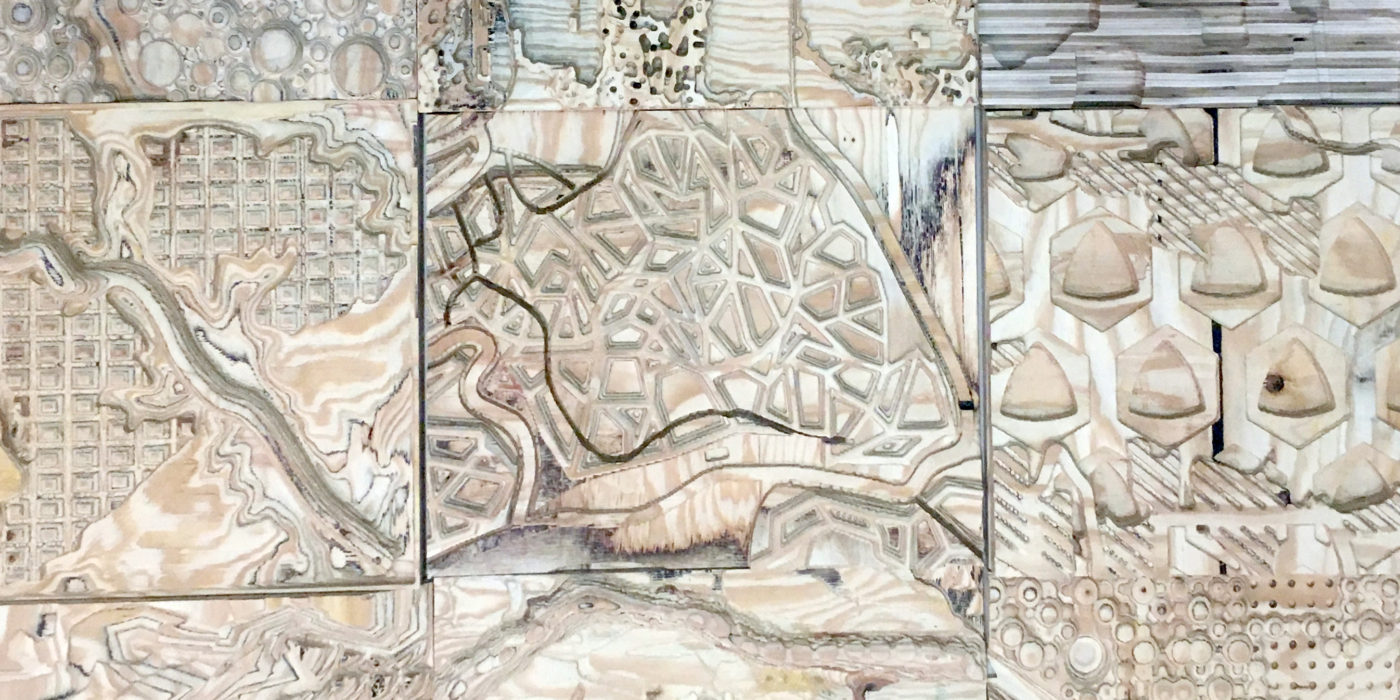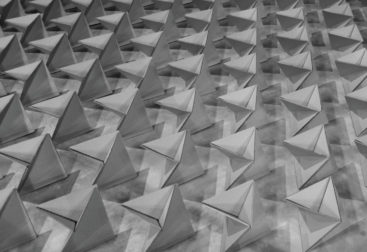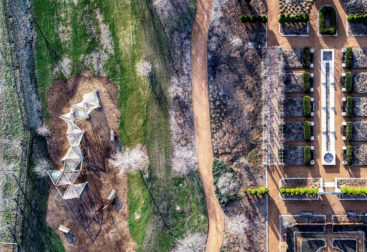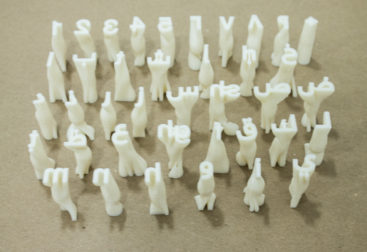ARCH 301 – 3rd Year Undergraduate Studio Fall 2017
Arch 301 studios focus on the intersection of architecture and landscape as constructed, cultural artifacts. Each studio faculty determines the location, parameters, and requirements of the various projects that he or she governs, communicated through studio-specific project briefs. This is a three-part studio – a thesis-focused ‘warm up’ workshop, a four-week site analysis, and a nine-week project to develop a proposal for an environmental studies library in the midwest landscape.
WORKSHOP ONE: Construction-bot – Robotic Processes in Nature
Working individually, students are asked to investigate digital and robotic fabrication processes that exist or possibly could exist. How do machines and technology confront nature? How do autonomous machines engage users? Students explore and propose a speculative construction-bot that engages a material process to create/modify space in a Midwestern landscape. Each student established materiality, processes, speculative robotics and the role of the human. What aspects are controlled, what are automated, and what is that resulting aesthetic? Can citizens (non-architects) inform the design?
FINAL PROJECT – Part one: Speculative Site – Digital Analysis Processes in Landscape
We analyze through creative action. This project requires that students do exactly one thing: study and reinterpret our site. Working in pairs, the students operate on, distort, dissect, expand, grow, and systematically mutate through modeling, drawing, and projection. This is affectionately the creative process in reverse. This project introduces point cloud manipulation through programs such as FARO and Cyclone, projection mapping and drawing.
FINAL PROJECT – Part two: Speculative Site – An Environmental Studies Library in Ledges State Park
This project continued to explore the speculative robotic systems proposed in the initial workshop, developing a permanent structure that is informed by the site research. It premised on additional site research with regards to existing conditions, followed by conceptual studies investigating sustainable materials and foundations, speculative robotic uses, manipulation of landscape and programmatic explorations. The program of this building is an Environmental Studies Library associated with Iowa State University and located in Ledges State Park in Madrid, Iowa.
Students questioned the programmatic requirements of a library of environmental studies, the meaning of a sustainable building in ‘nature’, and how speculative robotics translate architecturally.

